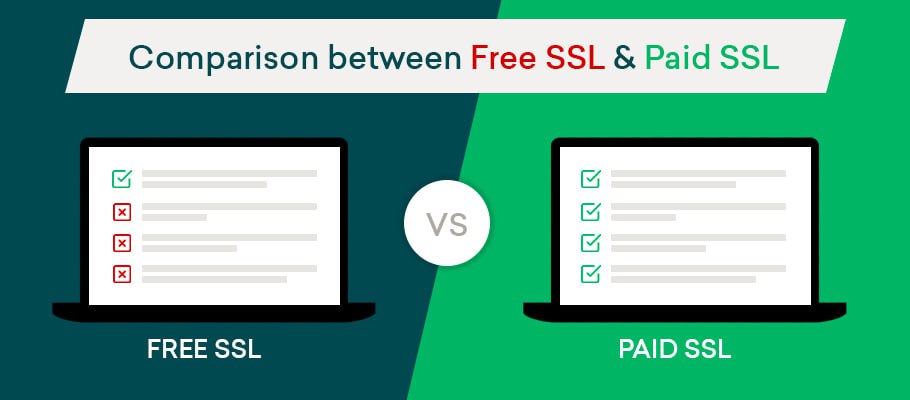
In the realm of web security, SSL (Secure Sockets Layer) certificates play a crucial role in encrypting data transmitted between a website and its visitors. When it comes to SSL certificates for websites hosted on cPanel, there are both free and paid options available. Understanding the differences between these two types of SSL certificates can help website owners make informed decisions about their security needs.
A. Paid SSL Certificates
1- Enhanced Security Features:
Paid SSL certificates often come with additional security features beyond basic encryption. These may include extended validation (EV) certificates, which provide a higher level of assurance to website visitors by displaying the company name in the address bar.
2- Trusted Certificate Authorities (CAs):
Paid SSL certificates are issued by well-known certificate authorities that are widely recognized and trusted by web browsers. This can enhance the credibility of your website and improve visitor trust.
3- Warranty Protection:
Some paid SSL certificates come with warranty protection, which provides financial compensation to website owners in the event of a security breach resulting from a flaw in the SSL certificate.
4- Technical Support:
Paid SSL certificate providers typically offer dedicated technical support to assist customers with installation, configuration, and troubleshooting issues.
B. Free SSL Certificates
1- Basic Encryption:
Free SSL certificates provide the same level of encryption as paid certificates, securing data transmission between the website and visitors' browsers.
2- Limited Validation:
Unlike paid SSL certificates, free SSL certificates usually offer domain validation (DV) only, meaning they do not verify the identity of the website owner. This may lead to lower levels of trust among visitors.
3- Shorter Validity Period:
Free SSL certificates often have shorter validity periods compared to paid certificates, typically lasting anywhere from three months to one year. This requires website owners to renew their certificates more frequently.
4- Self-Service Setup:
With free SSL certificates, website owners are responsible for generating, installing, and renewing their certificates themselves. This may require technical expertise and time investment.
C. Considerations for Choosing Between Paid and Free SSL Certificates
1- Security Needs:
Evaluate the sensitivity of the data transmitted through your website and the level of trust you wish to establish with visitors.
2- Budget:
Determine whether the enhanced features and support provided by paid SSL certificates justify the cost for your website.
3- Technical Expertise:
Consider your familiarity with SSL certificate management and whether you have the skills to set up and maintain free certificates effectively.
4- Compliance Requirements:
Some industries and regulatory bodies may have specific requirements regarding SSL certificate validation and encryption strength.
Conclusion
Both paid and free SSL certificates offer encryption to secure websites and protect data transmitted over the internet. The choice between them depends on factors such as security needs, budget, technical expertise, and compliance requirements. By understanding the differences outlined above, website owners can make informed decisions to ensure the security and integrity of their online presence.







